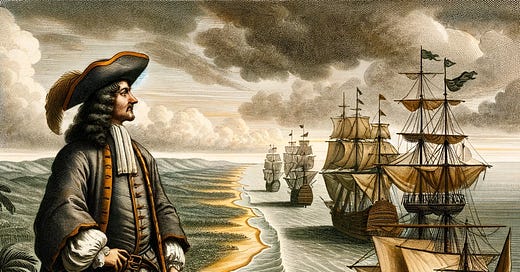William Paterson knew his history. New Scotland (Nova Scotia) had failed catastrophically two generations earlier, but Paterson had the firm conviction that he had learned from the nation’s previous mistakes.
This time, it would be different. This time, Scotland would have an overseas empire, just like the other big players in Europe.
Unlike the previous attempt, this plan centered around trade rather than mere settlement, leveraging Scotland's growing financial acumen.
Paterson’s audacious scheme seemed sensible at the time. After all, he had just helped found the Bank of England, and the numbers seemed like they would work. Paterson and some friends began to devise a way to raise the gargantuan sum of money they’d need.
The concept behind the venture was awe inspiring and mind-bending. The idea was to connect the world’s two biggest oceans together by way of a free trade hub at one of the shortest points—the Isthmus of Darien. In the 1690s, this was a particularly ambitious idea, giv…
Keep reading with a 7-day free trial
Subscribe to Goatfury Writes to keep reading this post and get 7 days of free access to the full post archives.



